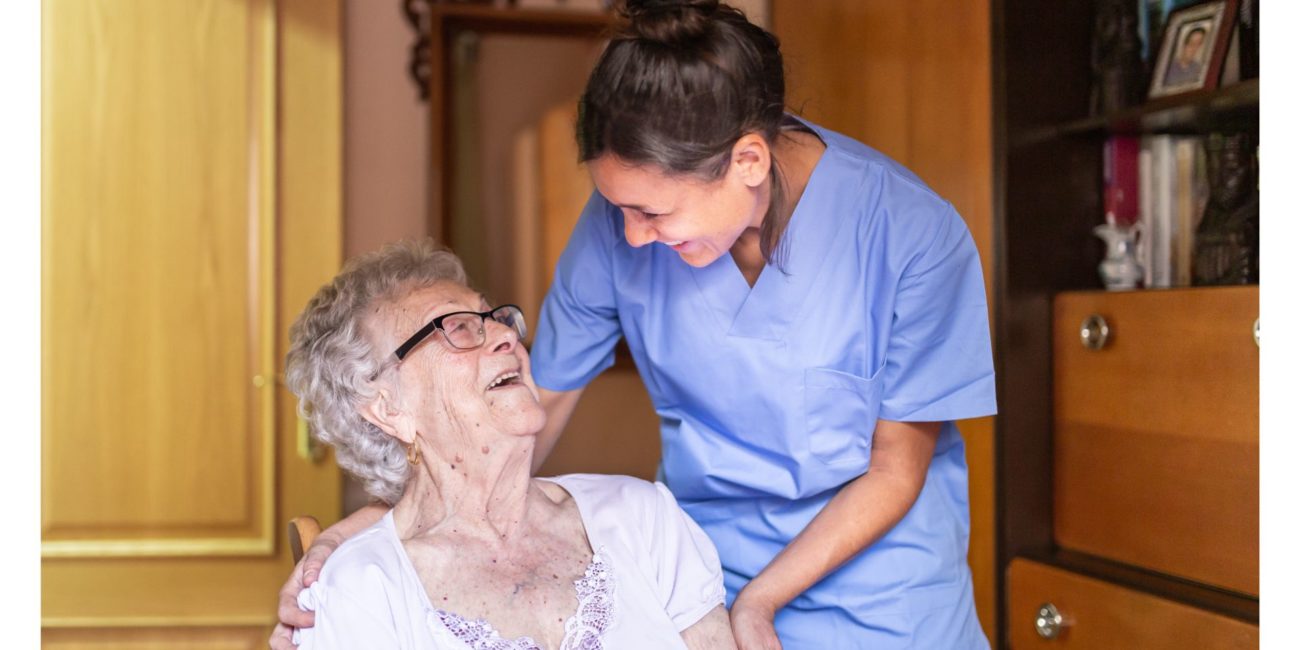Vision loss is one of the first signs of aging experienced by older adults –one in three people over the age of 65 experience some form of vision loss in their lifetimes. Loss of vision is often accompanied by feelings of fear, anger, confusion, and even depression. Adjusting to life with vision loss is difficult, no doubt, but it is also manageable. Our loved ones can and will be able to persevere with the proper support.

Vision Loss and Taking the Right Steps
Many older adults associate loss of vision with loss of independence. While our loved ones’ lives may change significantly as their vision degenerates, we can help them maintain their independence by making a few simple modifications to their home and routine.

Navigating through Vision Loss
Helping our aging parent modify, declutter, and organize their homes can maximize their independence and allow them to live a happy, healthy life.
- To reduce their risk of falling, rearrange furniture to widen their walkways.
- Install grab rails around the home to help better navigate their surroundings without tripping.
- Use double-sided rug tape on the corners of any throw rugs to prevent tripping and falling.
- Clearly label everyday household items. Use organizers in cabinets and drawers to help an elderly parent easily find things they need. Place labeled baskets around the home for commonly used items like remotes, glasses, keys, etc.
- Create tactile cues on widely used items. For example, place velcro on dials and buttons. Or use a specific number of rubber bands on canned goods to help a loved one differentiate between them in the cabinets.
- Label switches and dials with bold, bright lettering.
- Invest in a large-numbered phone so they can call others independently.
- Install a virtual assistant like Alexa or Google Assistant to dial by voice.

Improving Visibility around the Home
While we may not be able to reverse the effects of aging and vision loss, we can improve visibility around our aging parent’s homes by making a few simple changes to their environment.
- Brighten up a home by adding extra lamps around commonly used spaces and installing high-watt LED light bulbs into their fixtures. For additional support, consider installing voice-activated light bulbs if a loved one is struggling to find the light switch.
- Utilize contrasting colors throughout the home. This will allow aging eyes to see often-used items easier. Consider using colorful hand towels that “pop” against their bathroom walls or dark placemats on tables if they have light dishes.
- Highlight door knobs and handles with colorful tape or nail polish.
- Purchase large-print versions of a loved one’s favorite books to have around the home for them to read. If they’re more tech-savvy, consider purchasing large button phones and remotes so they can have access to their favorite devices. Text on an electronic reader like a Kindle can be enlarged for low vision.
- Consider investing in magnifying devices for a loved one to keep around the home.

Adaptive Hygiene Practices
Our loved ones deserve to age with dignity. We can ensure they maintain this by making minor modifications to their hygiene routine.
- Pour various hygiene products into different colored and shaped bottles and clearly label them to prevent confusion between identifying soaps, shampoos, conditioners, and lotions.
- Add pumps to frequently used items like shampoo, conditioner, body wash, and toothpaste tubes to disperse perfectly measured amounts of product.
- Use non-slip mats in the bathroom to help a loved one stay safe as they bathe.

Precautions for Being Out and About
We can help our elderly parent access their community by working with them to identify any barriers their vision loss has created and plan solutions accordingly.
- Help create routes to their favorite destinations plotting easily identifiable “mile markers” along their path.
- Talk about street safety – advise them to cross the street only at crosswalks with a “walk” light.
- Help quickly identify bills in their wallet by folding each denomination differently.
- Teach a loved one how to use their cell phone and its GPS. Make sure they know how to use this before leaving home in the event of getting lost.
- Invest in a pair of non-slip shoes so they can move around safely.
- If an elderly parent is still driving, encourage them to take a driving course for older adults to learn more about specific concerns they may have while driving.




Leave a Reply